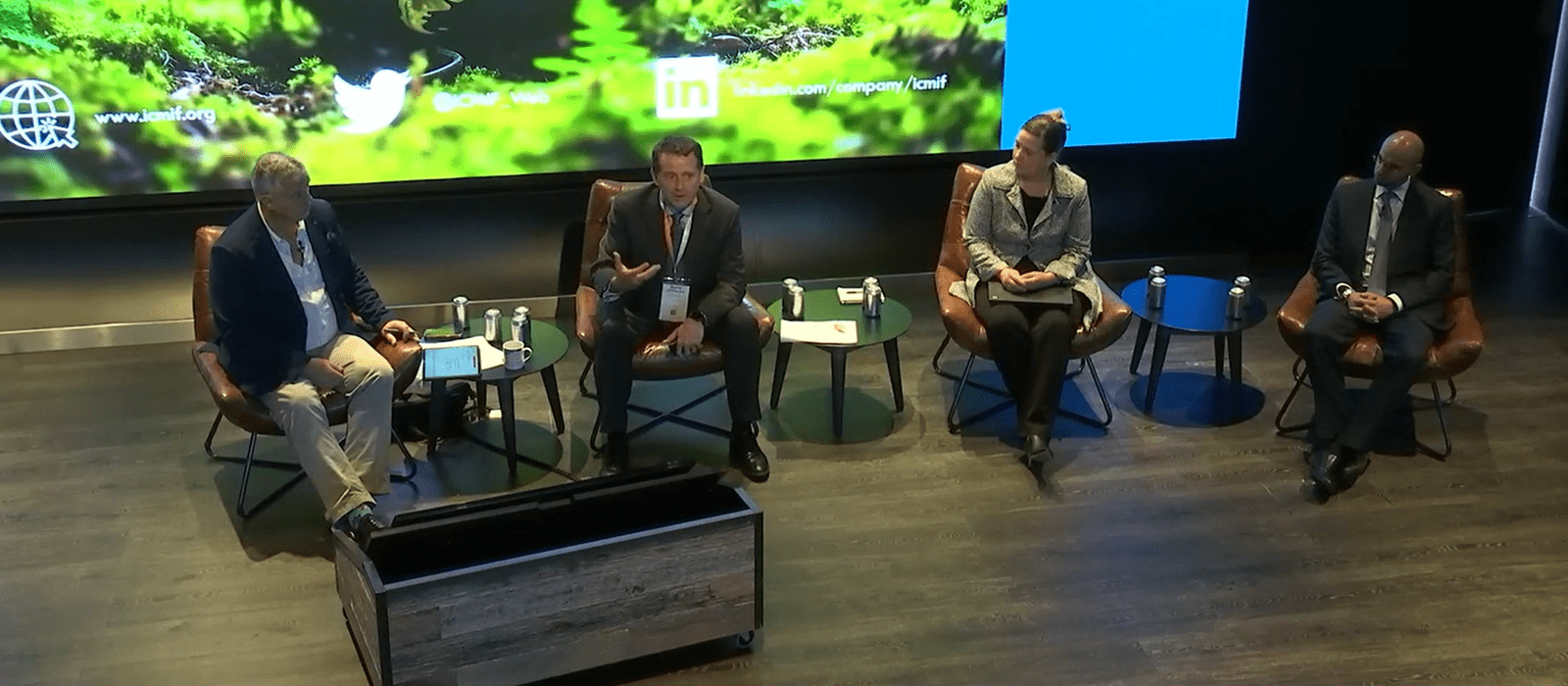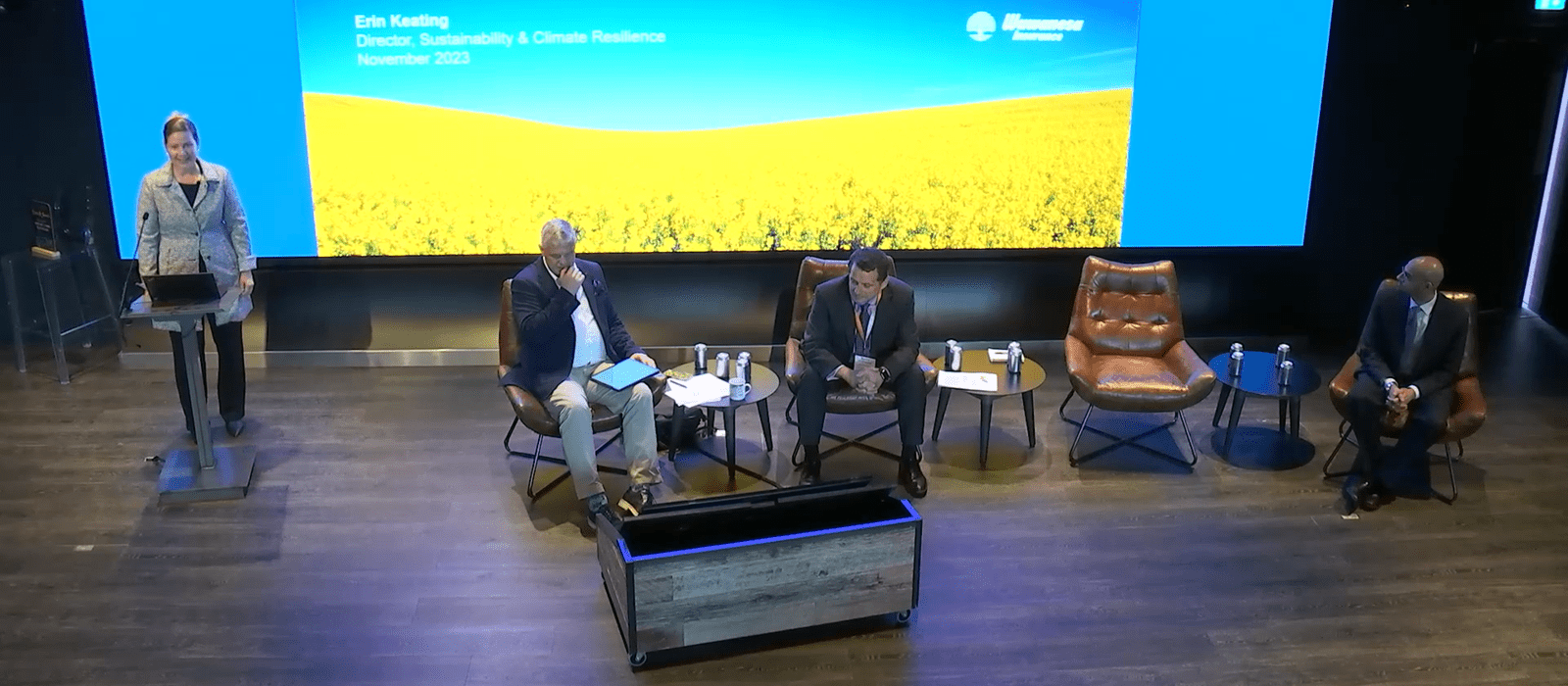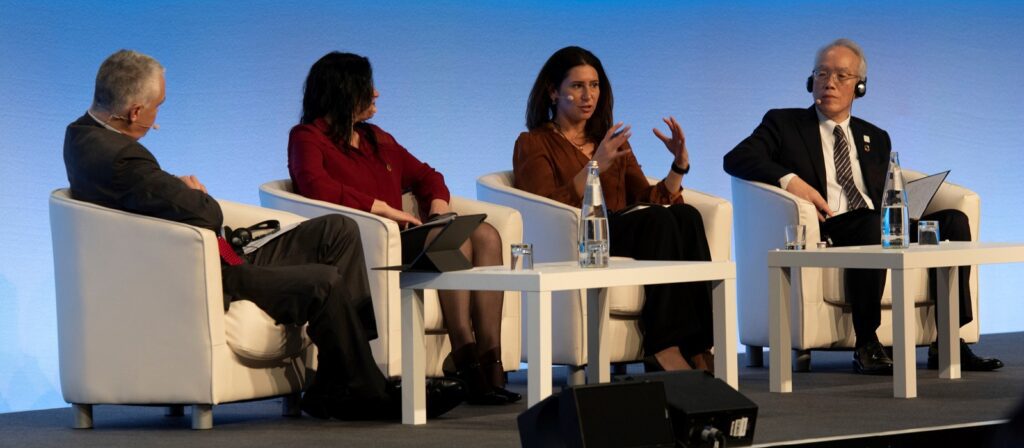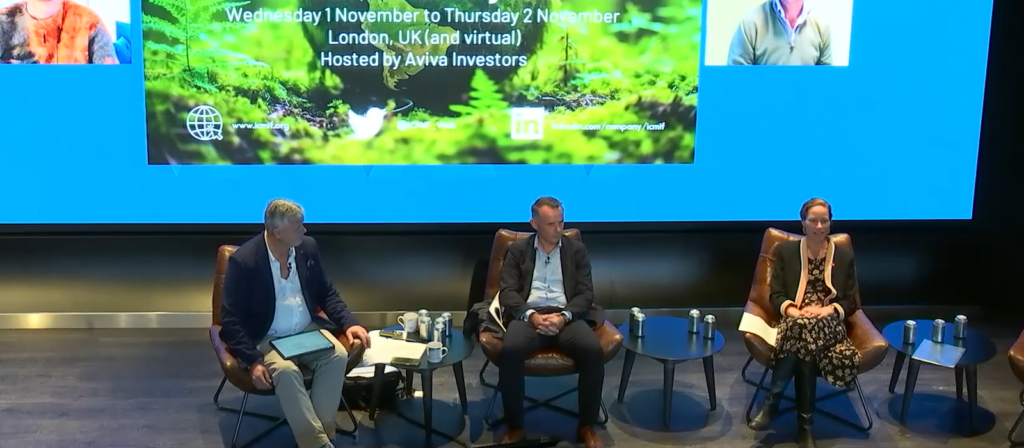Royal London (UK) has embarked on a transformative journey towards sustainability, deeply rooted in its organisational purpose. The realisation of the need for a sustainability strategy emerged from a profound understanding of the company’s purpose. The mutual model of Royal London, where customers are seen not just as owners but as custodians for future generations, inherently supports sustainable practices. This model fosters a sense of responsibility towards maintaining and passing on a healthy and thriving organisation.
Royal London’s journey towards clarity in purpose began with extensive internal engagement. Over 2,500 colleagues across the UK and Ireland participated in purpose workshops and pop-up cafes.
Royal London’s approach to sustainability is structured around three pillars:
- Building Financial Resilience: A key aspect of their work, focusing on helping customers build the necessary capital for a secure retirement and protecting them from life’s unexpected shocks.
- Commitment to a Sustainable World: This involves guiding customers to not only build capital but also invest in a world they would like to retire into, reinforcing the mutual responsibility towards sustainable practices.
- Strengthening the Mutual Choice: This pillar highlights the responsibility of managing and growing mutual capital so that future generations can benefit from it, just like the past generations have.
The company has also established a comprehensive Responsible Investment and Climate Change programme. This programme sets out commitments and strategies to reduce CO2 emissions in operations and investments. Engagement with external stakeholders and advocacy for governmental actions are also key components of this initiative.
Royal London’s approach to achieving its purpose is stratified into three ‘horizons’. Horizon One focuses on continuous improvement in day-to-day operations. Horizon Two targets the development of capabilities needed for long-term goals. Horizon Three acts as it’s ‘North Star’, aspirational outcomes that guide the company’s direction.
Royal London’s sustainability journey is marked by extensive internal and customer engagement. Initiatives like the eco champs network and sustainability learning programmes for colleagues are instrumental in embedding sustainability into the company’s ethos. Moreover, customer engagement focuses on explaining the importance of sustainable investment strategies over exclusionary tactics.
Wawanesa’s (Canada) journey into sustainability began with a deep understanding of the insurance industry, involving extensive external research and internal discovery. This led to the development of five strategic dimensions, tailored to fit Wawanesa’s unique business model. These dimensions are pivotal in determining where insurance can contribute to a sustainable economy and how the company can focus its efforts.
Over the past year, Wawanesa has concentrated on strengthening climate resiliency, advancing environmental stewardship, and building diversity, equity, and inclusion (DEI). These priorities, aligned with the United Nations (UN) Sustainable Development Goals (SDGs), reflect the company’s commitment to societal and environmental issues.
Wawanesa’s sustainability team is strategically positioned within the company’s new strategy office. This placement not only empowers the team but also facilitates collaboration with departments like member experience and innovation. Integrating member centricity with sustainability, the team is at the forefront of guiding Wawanesa towards a healthier and more sustainable future.
To manage and communicate sustainability initiatives effectively, Wawanesa has adopted a formalised framework. This approach ensures consistency and clarity in the company’s sustainability journey, avoiding the pitfalls of ad-hoc and reactive measures.
A key aspect of Wawanesa’s strategy is understanding stakeholder expectations and setting actionable goals. The company has engaged in a comprehensive materiality assessment, surveying various stakeholder groups to identify material issues. This process is crucial in shaping Wawanesa’s sustainability agenda.
Recognising that not everyone will read detailed reports, Wawanesa emphasises creative and effective communication strategies to engage diverse stakeholder groups. This approach reflects a broader understanding that language and communication tools must resonate with a wider audience to foster real change.
Aviva Investors’ recent overhaul of its climate strategy, spanning over two and a half years, offers a rich case study for any business aiming to develop an effective net-zero strategy. A foundational step in developing a net-zero strategy is establishing clear objectives. Motivations could range from contributing to global sustainability, minimising direct climate impact, to addressing climate-related business risks. Each of these drivers necessitates a distinct approach and specific success metrics. Aviva Investors’ experience underscores the importance of this clarity, as it shapes the entire trajectory of the net-zero strategy.
Net-zero is a commitment extending over decades that requires patience and a willingness to make decisions with long-term implications. Aviva Investors’ strategy highlights the importance of viewing net-zero as a journey rather than a destination. This long-term perspective ensures that strategies are robust and sustainable.
The path to net-zero is fraught with uncertainties. Organisations must remain agile, adapting their strategies in response to new information and changing external conditions. Aviva Investors’ approach shows how agility is not just about making adjustments but embedding flexibility into the organisation’s culture.
Aviva Investors’ identified five strategic elements of net-zero implementation: leadership and governance, cross-functional collaboration, strategic asset management, proactive investment strategies, and extended stakeholder engagement. Challenges that were noted include balancing immediate and long-term goals, managing diverse stakeholder expectations, and regulatory compliance and market dynamics.
Session speakers:
- Barry O’Dwyer, Group CEO, Royal London (UK)
- Erin Keating, Director, Sustainability and Climate Resilience, Wawanesa (Canada)
- Mirza Baig, Global Head of ESG Investments, Aviva Investors (UK)








